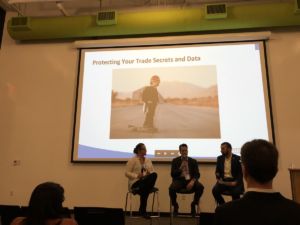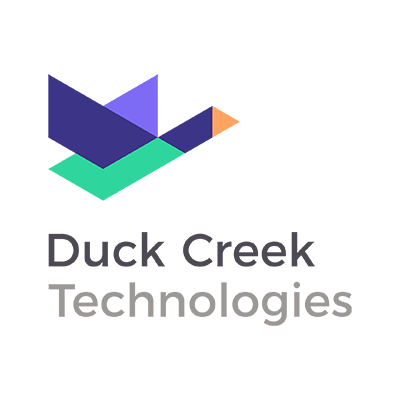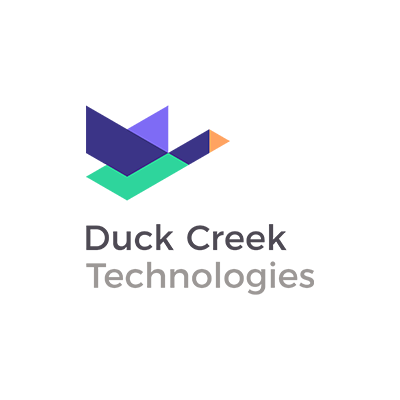Roughly 300 people attended Insurtech Boston last night at District Hall, right across the street from Duck Creek’s headquarters in  Boston’s Innovation District. Insurance carriers, agents, and a who’s who of insurtech players kicked off the evening with valuable networking including great conversations about who fits where, recruiting strategies, job hunting, proofs of concept, and, more than ever, people actually partnering on deals.
Boston’s Innovation District. Insurance carriers, agents, and a who’s who of insurtech players kicked off the evening with valuable networking including great conversations about who fits where, recruiting strategies, job hunting, proofs of concept, and, more than ever, people actually partnering on deals.
The first panel of the evening, Insurtech Insiders, was hosted by Heidi Lawson, a partner from law firm Mintz Levin. Heidi was joined by my former business partner, Marc Maselli, now managing director at Morgan Partners, and, in my opinion, the most knowledgeable investment banker in the insurtech space. The panel was rounded out by Jim Bowen, founder of Energetic Insurance.
Energetic is a cool startup with a novel, data-driven approach to developing new risk management products designed to unlock exponential growth in the commercial and industrial solar photovoltaics market. Jim started his venture after experiencing firsthand the challenges of trying to manage risk for his solar energy business. He thought insurance would be the key risk management tool of his energy problem, but standard insurers didn’t get it. His agent actually said to him, “If it doesn’t burn down, I don’t have a solution for it.” Heidi had worked with Jim early in his process and mentioned that she had to “translate” between “Jim the energy guy“ and pretty much anyone he talked to about insurance.
The panel also covered some highly relevant content to the startups / insurtech providers in the room, including a couple of major themes:
1) Protecting trade secrets and data
- Having people on your team who know the insurance industry is critical – being a horizontal software expert in this space isn’t enough to be successful.
- Investors are drawn to intellectual property, and are willing to put a high valuation on it. Identify and harvest company assets early on, as they are developed, and get them legally protected as intellectual property.
- Don’t sell your source code! Once that gets out, valuation is shot.
- An unfunded startup with two employees can’t walk into a $1B+ insurance company and tell them they know everything.
- Insurtechs need to be prepared. Big companies have teams of good attorneys who can drag out a legal process that can be unaffordable.
- One of my favorite quotes of the night: “Data is the valuable ‘exhaust’ that gets thrown off from the insurance process.” Insurtech companies that generate data are getting very high valuations right now.
2) Creating Value
- Companies that have proven recurring revenue are getting far greater valuation multiples than those selling perpetual licenses – focusing on that model from day one is a must for a lucrative exit. “As an insurtech or any SaaS provider, it’s nice to wake up on January 1 and have 80% of your revenue covered,” Marc noted.
- Recurring revenue also accelerates the timing of a possible exit at ANY valuation. Setup fees, one-time charges, etc., are useless from a valuation perspective, as one-time revenue is not “tradable.”
- Businesses that create or own proprietary data have much higher than usual valuations right now, because they have the highest gross margins.
The second session of the night was Startup Stories, a theme that has been a big draw at the previous three Insurtech Boston events and certainly exceeded expectations this time. The three featured startups were all younger than three years and are addressing important functional gaps in the industry.
Casey Gustus, also a friend of mine and formerly with Goji, is the founder and CEO of Apliant. Apliant has created a cloud-based offering to improve agency workflow and productivity from on-demand lead flow to comparative rating and placement, leveraging analytics to continuously make that workflow more efficient.
Casey talked about his journey to Apliant. On a gap year from Gettysburg College, Casey headed to the West Coast to work on automating financial aid, and ended up selling $1B in student loans. After finishing college, he got involved in Mingle.com and other online dating sites (as an entrepreneur, not a user) and later an online obituary company that got acquired by Legacy.com. Casey brought all this experience to Goji (formerly Commercial Union), taught himself insurance, and built the company to the point where it was writing more than 8,000 policies per month. Casey left Goji in 2014. I tried to hire him, but he was on a mission to create a unique insurance experience, one with a smooth, efficient workflow on a single platform that handled marketing, sales, and servicing. He built some PowerPoint slides, created financial models, got some angel funding, and is off and running.
The next startup story was from FilingMate’s Scott Soderstrom, who set out to create the TurboTax of insurance regulatory filings. Scott joked about being at the exciting intersection of insurance and government-regulatory filings – describing the 24 slow, painful steps to completing a typical state regulatory filing. Stuck doing this work for a carrier, Scott kept thinking about TurboTax, and how easy that product was to use… and he went to work.
The result, FilingMate, looks at last year’s filing, asks the filer what has changed, creates a new filing, and charges a small fee to submit the updated filing. Simple conceptually, but FilingMate is the first solution I’m aware of that handles the full end-to-end workflow. Keep an eye on these guys.
Closing out the night was the highly-energetic Jon Lincoln of Veruna, which is a Duck Creek customer. Veruna is a fully cloud-based Agency Management System leveraging the Salesforce.com platform. They have won a number awards, and are starting to win customers away from the two leading incumbents in the space.
After some time selling used cars, Jon worked for a document management company that sold to insurance agencies. “We hate our management system” became something Jon heard time and again, and he began to wonder – what if agencies could just use Salesforce?
“We started this company with no money, no experience, and no clue what we were doing,” Jon admitted. What Jon did know, however, was that he needed to build a good team.
Like many entrepreneurs, Jon started selling before he had a product. “We took deposits and then figured out how to deliver.” They had partners giving them resources and time, which were more valuable than money at that point. He recalled a time when he realized that ACORD AL3 was an important component of integration, taking a look at it, and being struck with terror. He called Frank Sentner, the father of Sagitta, to help him out. They ended up forming great partnerships with Ivans, Applied, TurboRater, Gradient Solutions, Boston Software, and, of course, Duck Creek.
Kudos and thanks to Mike Albert and Allan Egbert from AskKodiak for creating and building this awesome event. The growing turnout is a testament to the need for this forum in the Boston insurtech community. We’re all looking forward to the next one!





